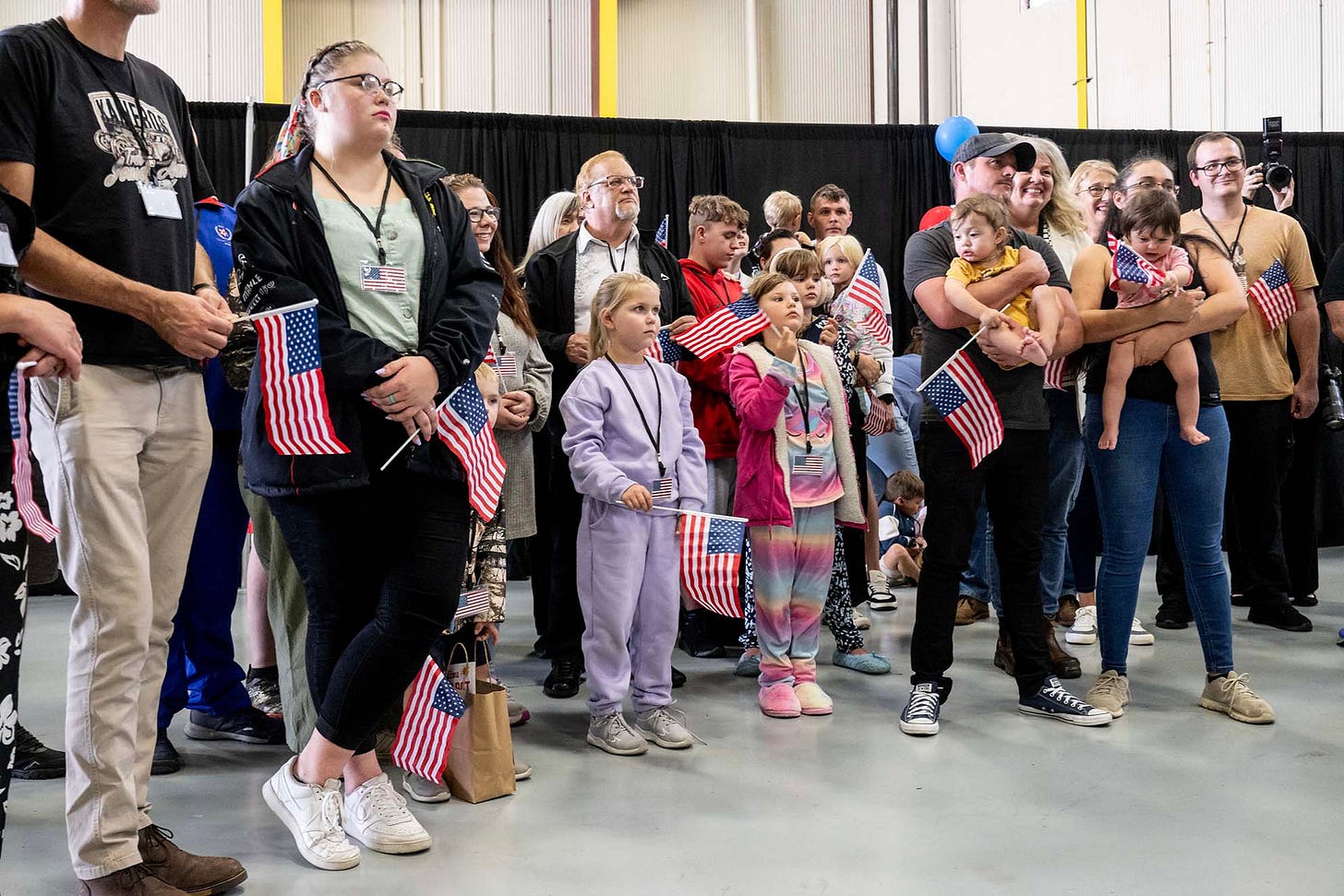America’s favourite Africans
In the United States, Afrikaner "refugees" were greeted with balloons and speeches by senior officials in the Trump’s administration, which paid for their flight.
Simon Allison in Johannesburg

In 1835, thousands of white settlers – the Voortrekkers – began what is known today as the Great Trek. This was the great migration of Afrikaners from the Cape Colony into the rest of South Africa.
On Sunday evening, 49 of their descendants embarked on what bemused South Africans are describing as “the Klein Trek”, or little trek: a charter flight from Johannesburg direct to Washington DC. Others are describing it as “The Great Tsek” – and the group of so-called refugees as the Voetsekkers (“Voetsek” translates loosely as “piss off” in Afrikaans).
In the United States, the travelling group was greeted with balloons and speeches by senior officials in President Donald Trump’s administration, which paid for their flight.
This week, Trump clarified what he meant by this, claiming that there is a “genocide” of white people, in particular Afrikaners, in South Africa.
This is news to most people in the country, where – three decades on from the end of apartheid – the average white person is still 20 times wealthier than the average black person. Rates of violent crime are high, but do not disproportionately impact white people.
Refugees from places like Sudan and Gaza are not being afforded a similar welcome in the US.
South Africa’s President Cyril Ramaphosa is scheduled to meet his American counterpart in the White House next week. Ramaphosa was involved in the struggle against apartheid, and in the negotiations that ushered in the new South Africa, so it will not be the first time that he has had to confront a president with white supremacist sympathies.





Good riddance to bad rubbish.